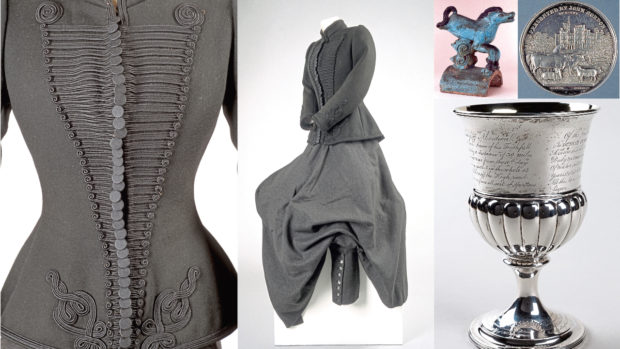In this week of the Cheltenham Festival, we take a look at how horses and equestrianism are represented in our decorative art collection, including ceramics, metalwork and costume.
Chinese Ridge Tile, Ming Dynasty, 1368-1644
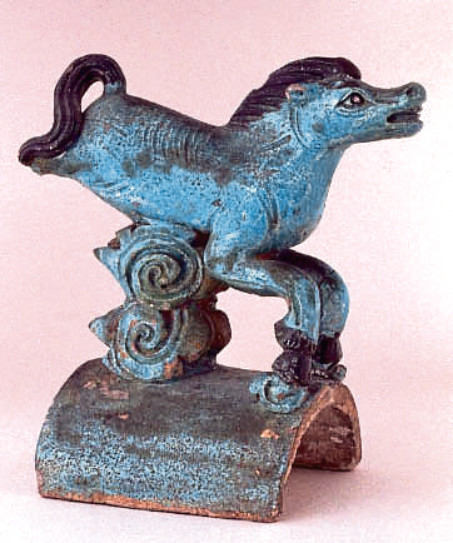
In China during the Ming Dynasty (1368-1644) it was common to decorate the roof with ceramic figures of gods or symbolic creatures. We have a stunning ridge tile for a roof in the form of a leaping horse in a bright turquoise glaze in our collection. It was believed that these ceramic figures could ward off evil spirits.
Silver chalice, 1821
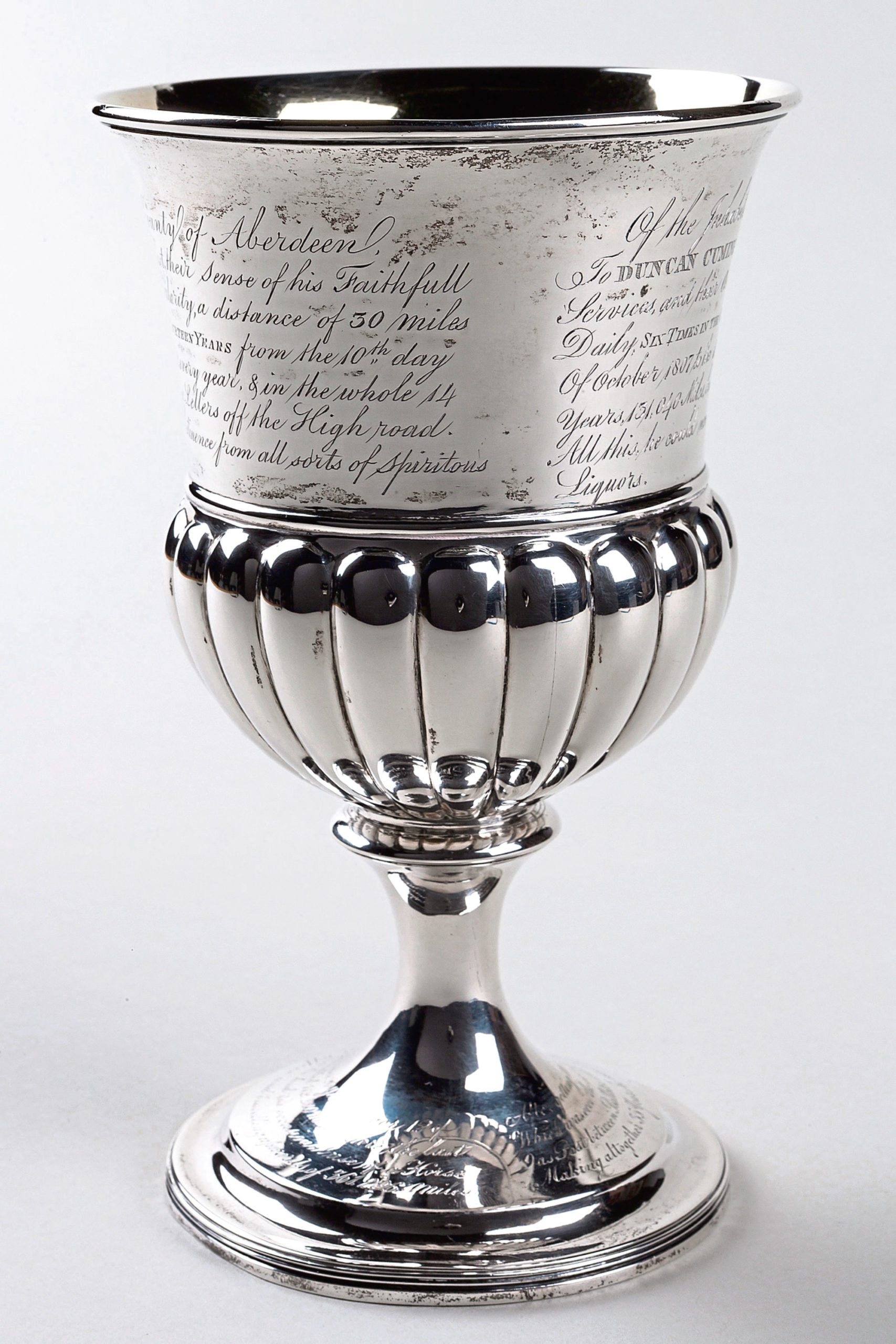
An engraved silver and gilt chalice made by George McHattie in 1821 was presented by the inhabitants of the districts of Braemar, Strathdee and Aboyne in the County of Aberdeen to Duncan Cuming, post office runner. He travelled more than 361,296 miles mostly on foot but also on horseback during his 35 year career. The inscription states ‘All this he could never have accomplished had he not been equally remarkable for his abstinence from all spiritous liquors’.
Agricultural medal for best cow, about 1881
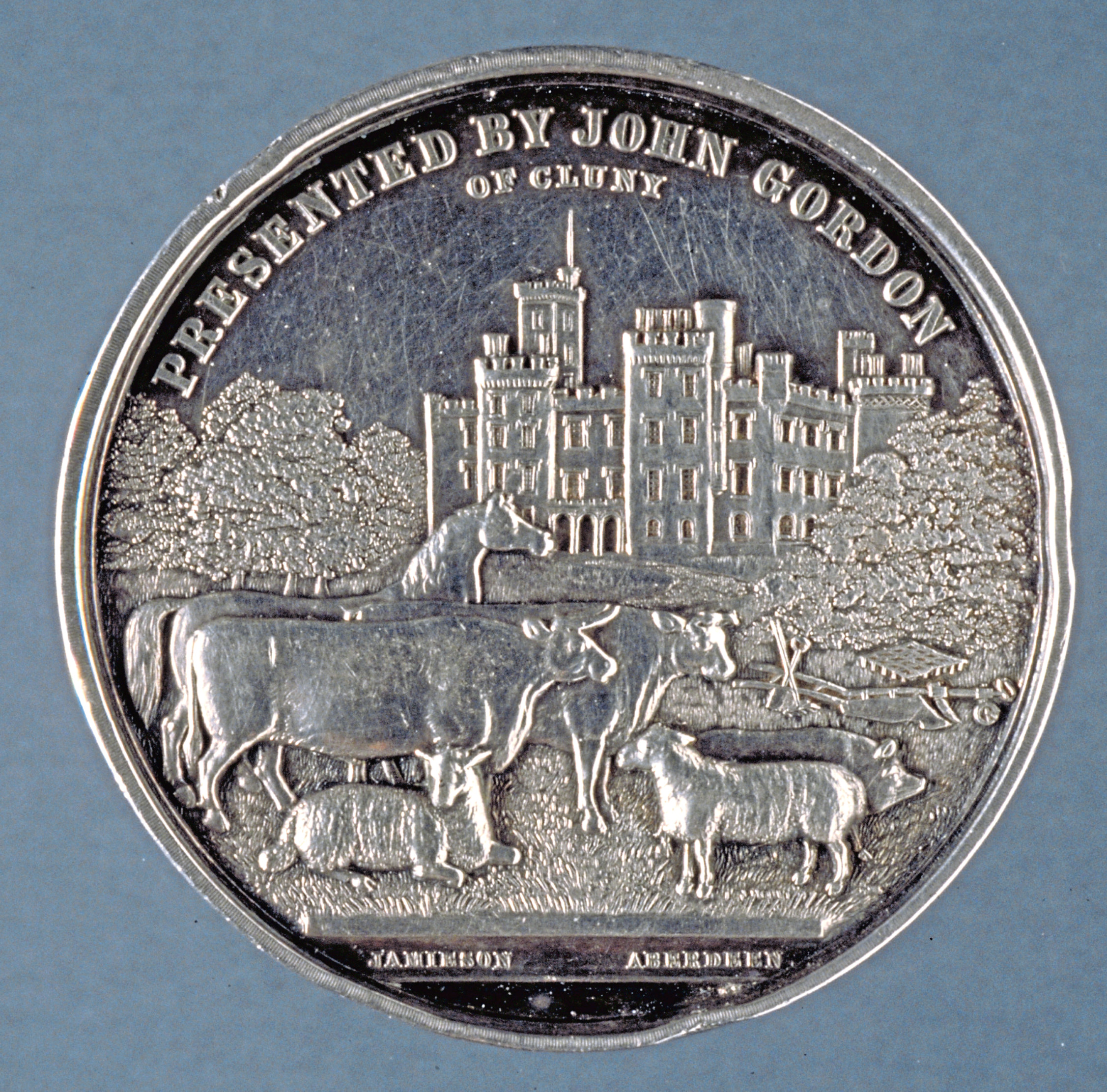
This agricultural medal for best cow was made by Aberdeen silversmith William George Jamieson (c.1874-1894) in about 1881. It was won by Mr James Noble from Dalherrick near Inverurie in Aberdeenshire. The medal has a relief design of a castle and trees with a horse, two cows, two sheep and a pig in the foreground.
Wool riding habit, 1880-1900 and fitted riding jacket, 1880-1900
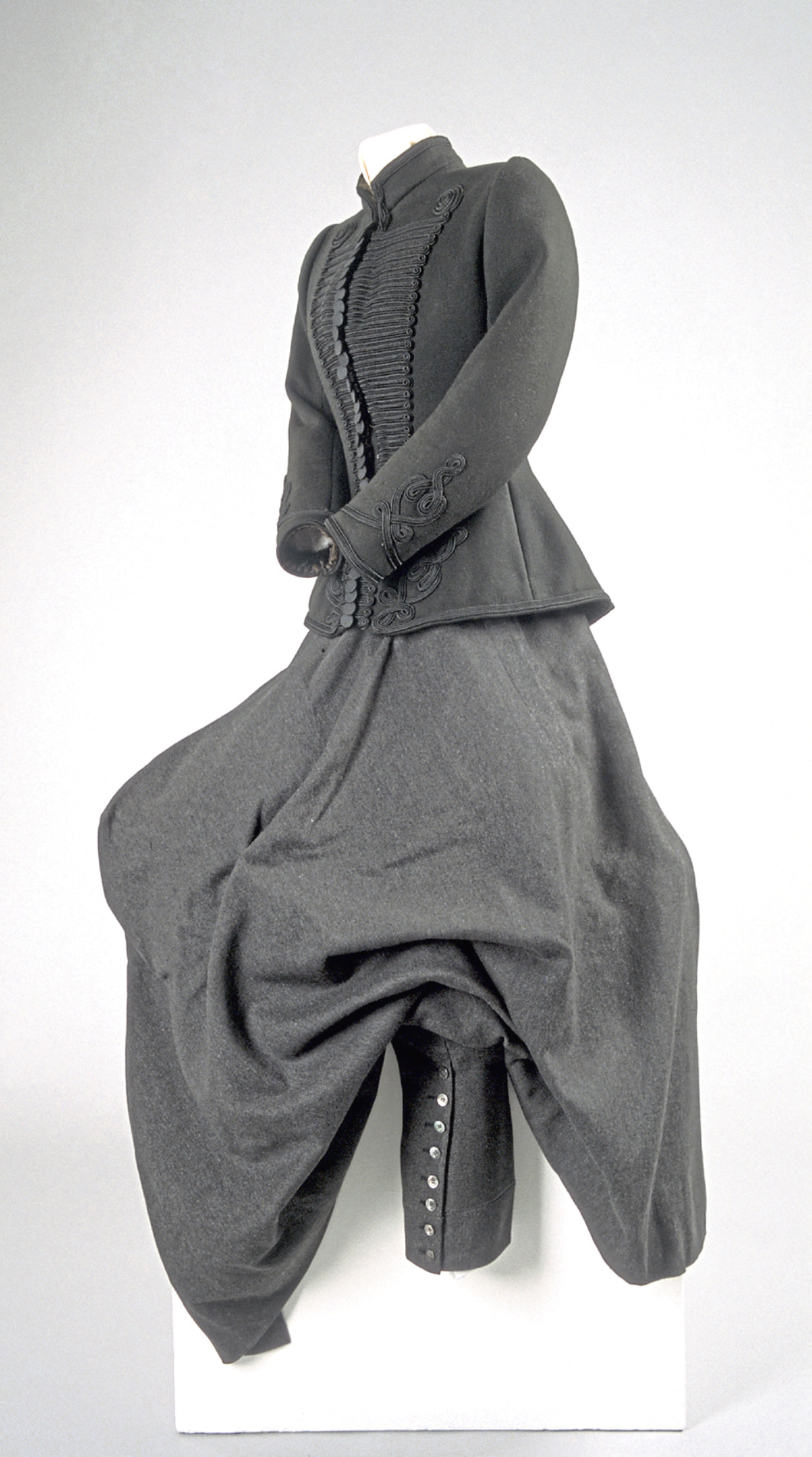
This dark grey wool riding habit consists of a black wool military style fitted jacket with false buttons, a grey wool side-saddle skirt and grey breeches.
The jacket is extremely fitted and would have restricted movement as it was worn over a corset. The side saddle skirt is ankle length with a large area open at the back to drape over the horse. The breeches were worn to preserve one’s modesty.
These items are not on public display at the moment. You can see some of the many items we have in storage on a behind-the-scenes guided tour of Aberdeen Treasure Hub Museum Centre.
Pre-bookable tours for individuals or smaller groups are available from Wednesday April 1.
Tours are free but must be booked in advance by emailing info@aagm.co.uk or calling 03000 200 293.
